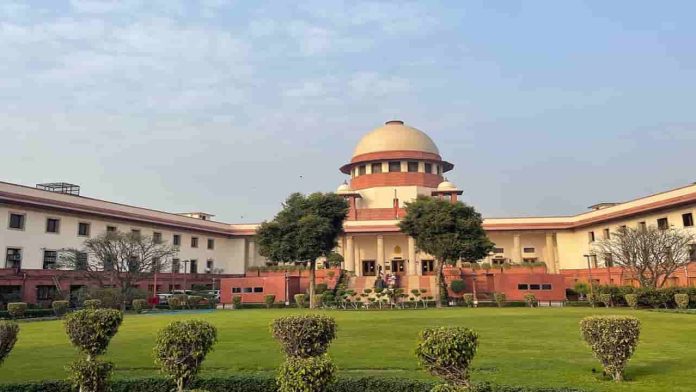The Supreme Court has today rejected the public interest litigation (PIL) petition which was filed by the BJP leader and advocate Ashwini Kumar Upadhyay asking for renaming the historical places and cities which were named after the invaders.
A bench of Justice KM Joseph and Justice BV Nagarathna asked the petitioner as to why he insists on a petition which went against secular principles envisaged in the Constitution.
The bench said that it is secular and needs to protect the Constitution. It also said there is no need to be concerned about the past, and dig it up to place its burden on present generation. The bench said that there is no need for any more disharmony.
The Court said that the petitioner is reexamining the past selectively and also took objection to terming an entire community as barbaric.
Justice Joseph remarked said that the petitioner was looking at the past selectively. He added that India is a secular country and we cannot point at a particular community, terming it barbaric.The bench asked if the petitioner wanted country to boil.
The bench remarked that Hinduism is a great religion and it does not allow bigotry.
Justice Joseph said that Hinduism is greatest religion in terms of metaphysics and it should not be belittled..The bench added that the world looks to us always.
Justice Nagarathna weighed in saying that “That is why it a way of life, does not allow bigotry,”
Justice Joseph added that in Kerala , Hindus have donated land to churches,
Justice Nagarathna said that the country is facing so many other problems which should be first solved and added that the divide and rule policy followed by the British to ensure that Indians kept fighting amongst themselves.
The Court also said that it has been settled by the Supreme Court in past judgments that India is a secular country and a nation cannot remain a prisoner of its past.
The Court said that we have to bear in mind that this Court dealing with the matter under Article 32 that the Court is tasked with enforcing fundamental rights. India, that is Bharat, in terms of the preamble is a secular country. this has been upheld by 9 judges.
The PIL filed by Upadhyay had sought directions to the Home Ministry for forming a Renaming Commission to find out the historical names of places renamed by ‘barbaric foreign invaders’, so as to maintain sovereignity and secure other fundamental rights.
Plea had asked the Central and State governments to be directed to update their websites and records to reflect,the correct names.
It had also sought that the Archaeological Survey of India be directed to prepare a list of such names under the citizens’ right to know under Article 19 of the Constitution.
The plea stated that as we celebrate the 74th anniversary of independence there are many ancient historical cultural religious places in the name of brutal foreign invaders, their servants and family members.
The Court,said that while India has been invaded many times over, the same cannot be wiped away from history by renaming places.
Justice Joseph asked if we can we rewrite history and say they did not invade?”
Justice Nagarathan said that India has been ruled by foreign invaders and it is not their fault.Have we not heard other problems in our country.
Upadhyay said that Constitutional protections cannot be given to invaders.
Upadhyay cited example stating that Hindus wiped out from Afghanistan, a minority in nine States. My understanding is this Constitution is not for foreign barbaric invaders.
The bench said that the principle of fraternity should trump everything.
The Court held that the history of any nation cannot haunt the present and future generations of a nation to the point that succeeding generations become prisoners of the past.
Thethe COurt added that golden principle of fraternity is of the greatest importance and rightfully finds its place in the Preamble of the Constitution.
Upadhyay sought to withdraw his petition but the bench disallowed the same and proceeded to dismiss it.


